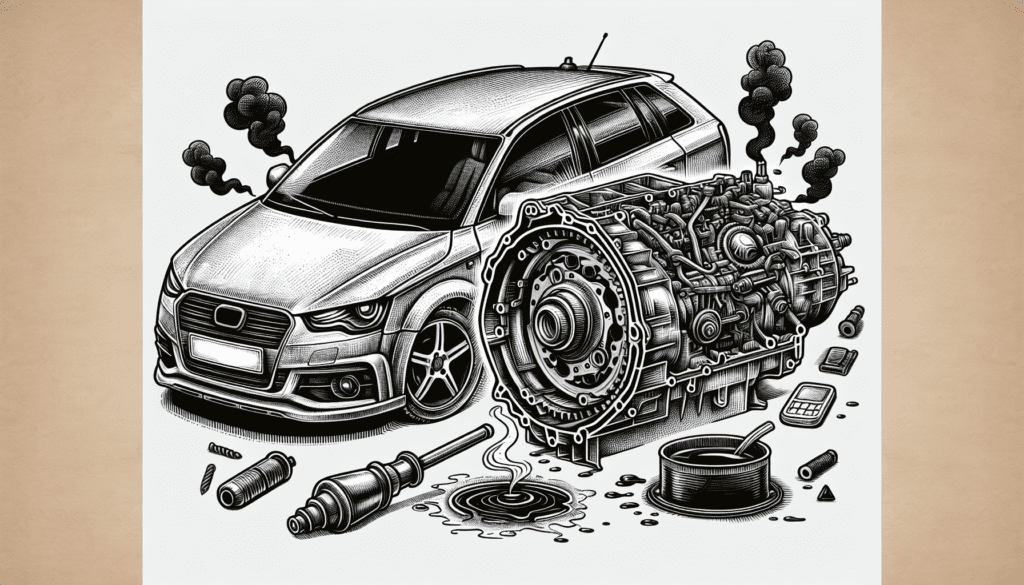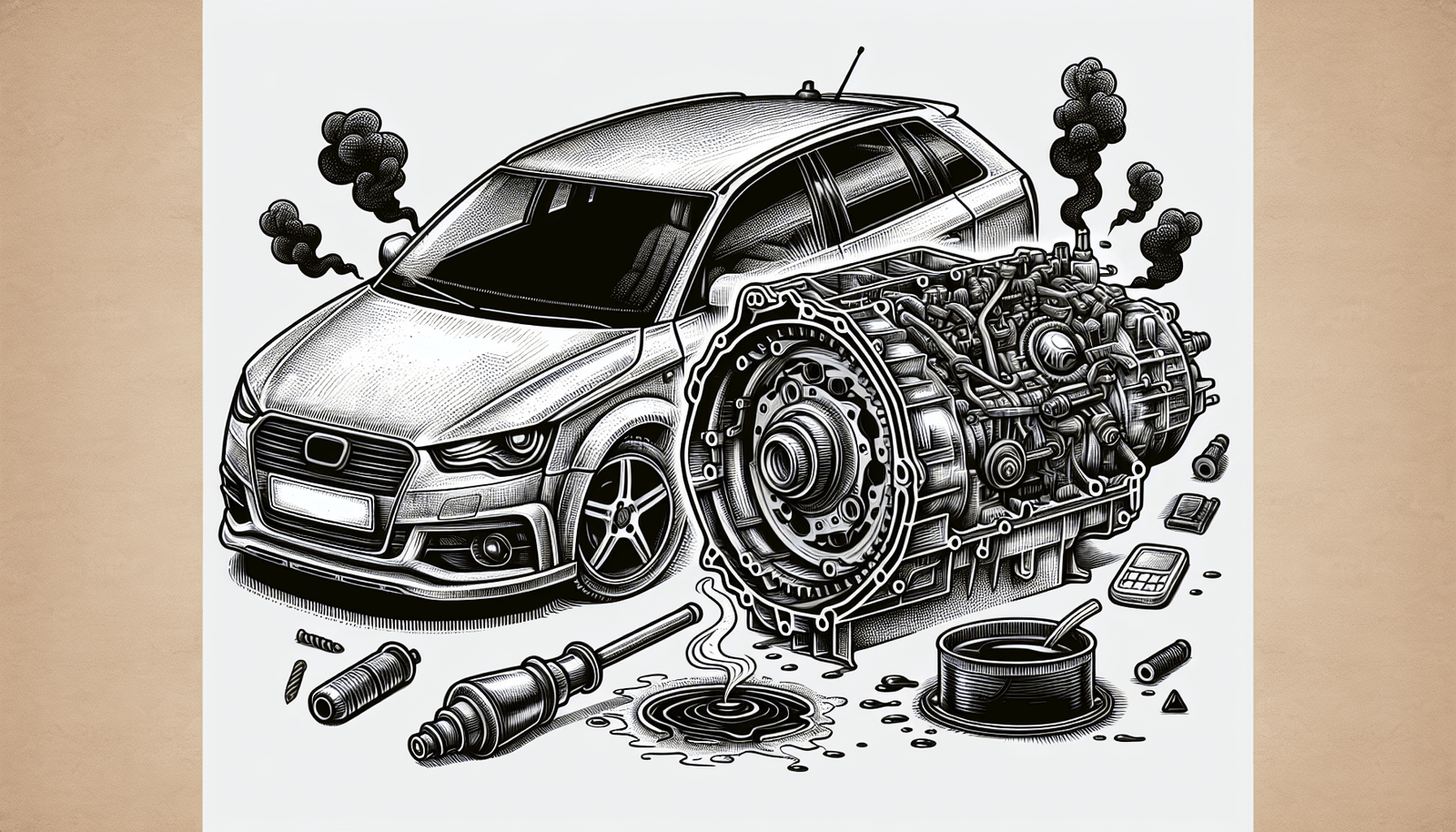Are you considering purchasing a used car but worried about potential transmission fluid problems? Look no further. In this article, we will discuss the common signs that indicate transmission fluid issues in a used car. By identifying these signs, you can make an informed decision and ensure a smooth driving experience in your new-to-you vehicle. So, let’s dive right in and explore the telltale signs of transmission fluid problems!
Leaking Fluids
One of the most noticeable signs of transmission fluid problems in a used car is visible fluid leaks. If you happen to notice pink or reddish fluid on the ground or under your car, it’s a clear indication that there is a transmission fluid leak. Transmission fluid is essential for the proper functioning of your car’s transmission, and any leaks can lead to serious issues if left unaddressed.
Burning Smell
Another sign of transmission fluid problems is a strange odor that resembles burnt toast. If you start noticing a burning smell coming from the engine or under the car, it could be an indication of a transmission fluid issue. The burning smell is often a result of overheating transmission fluid or fluid that has been contaminated with dirt or debris. Ignoring this smell can lead to severe damage to your car’s transmission.
Delayed or Erratic Shifting
Transmission problems can also become evident through delayed or erratic shifting. If your car’s transmission starts slipping or shifting gears unexpectedly, it’s a sign that there may be an issue with the transmission fluid. Additionally, if you experience delays in shifting when accelerating or decelerating, it’s crucial to have your transmission checked by a professional. These symptoms could indicate low fluid levels or fluid that needs to be changed.
Noisy Transmission
A noisy transmission can be a clear sign of transmission fluid problems. Whining, buzzing, or humming sounds coming from the transmission can indicate issues with the fluid. It could be a result of low fluid levels, contaminated fluid, or even worn-out transmission parts. Additionally, if you hear unusual noises when shifting gears, it’s essential to get your transmission inspected to avoid further damage.

Check Engine Light
If your check engine light illuminates on the dashboard, it’s a cause for concern, especially if it is related to the transmission. The check engine light can be triggered by various issues, including problems with the transmission fluid. It’s important not to ignore this warning sign and to have your car checked by a professional. Using a scanner to check for transmission-related error codes can provide more insights into the specific problem.
Difficulty in Engaging or Disengaging Gears
Experiencing trouble when shifting into gear or having a hard time getting the car out of gear are signs that shouldn’t be ignored. If you find yourself struggling to engage or disengage gears smoothly, it’s likely related to transmission fluid problems. These issues can occur due to low fluid levels, worn-out clutch components, or contaminated fluid. Prompt attention is necessary to prevent further damage to the transmission.
Slipping Transmission
A slipping transmission is a serious problem that requires immediate attention. If you notice a loss of power while accelerating or observe that the engine revs without corresponding vehicle acceleration, it indicates a slipping transmission. This occurs when the transmission fails to maintain a stable connection between the engine and the wheels due to issues such as low fluid levels, worn-out clutch components, or damaged seals. Ignoring this problem can result in complete transmission failure.
Gears Grinding
Grinding or scraping noises when shifting gears are a clear indication of transmission fluid problems. This unpleasant sound suggests that something is not functioning correctly within the transmission. It could be a result of low fluid levels, worn-out clutch components, or damaged synchros. Getting your transmission inspected and repaired as soon as possible can avoid further damage and costly repairs.
Overheating Transmission
An overheating transmission can cause significant damage to your car’s transmission system. If you notice that the transmission temperature gauge shows high readings or if your car starts to overheat while driving or idling, it’s crucial to address this issue promptly. Overheating can be caused by a lack of transmission fluid, a faulty cooling system, or internal problems within the transmission. Regular maintenance and prompt repairs can prevent extensive damage.
Lack of Response
If your car exhibits no response or a delayed response when shifting gears, it’s a sign that there may be transmission fluid problems. When the transmission fluid is not at the proper level or is contaminated, it can lead to a lack of response or a sluggish feel when driving. This can negatively impact your car’s performance and safety. Seeking professional help to diagnose and address this issue is vital to maintain the integrity of your transmission.
In conclusion, paying attention to the common signs of transmission fluid problems in a used car is crucial for maintaining the health and longevity of your vehicle. Leaking fluids, a burning smell, delayed or erratic shifting, noisy transmission, check engine light illumination, difficulty engaging or disengaging gears, slipping transmission, gears grinding, overheating transmission, and lack of response are all indicators that should not be taken lightly. If you experience any of these signs, it’s important to have your transmission inspected and repaired by a professional as soon as possible to avoid more extensive damage and costly repairs down the line. Regular maintenance and proper care of your car’s transmission system will ensure a smoother and safer driving experience.

